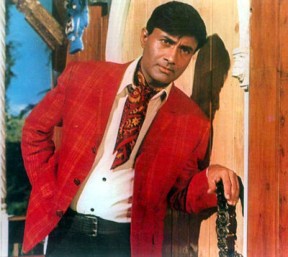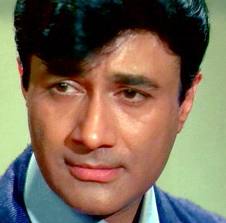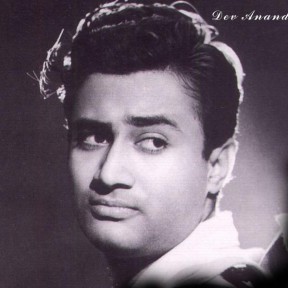Dharam Dev Pishorimal Ānand is no more but it is hard to come to terms with his absence. He was someone that Jigar would describe as the zindagi in zindagi..the life in life. More than his film career, it was his passion for life that defined him. His life was an endorsement of hope, of optimism, of the belief that life is what we make of it. We are who we think we are. How else can you explain a man who was born in the 20s but was more enthusiastic about life than generations that came after him? He was tireless and showed us that if our spirit is the most powerful limb in our body, we will walk far, regardless of who is with us or against us. Who is laughing, jeering and mocking our journey. Dev Anand never stopped walking. The world, said Mahesh Bhatt recently, has more spectators than performers. Dev Anand was never a spectator. He always created. Sometimes with success, sometimes without it, sometimes with stubborn self-belief in a vision that was failed by execution but he was unstoppable as was demonstrated by his recent film Charge Sheet.
He brought to Hindi cinema, a certain urban metrosexuality far before the term was even coined. He never ripped open his shirt to underscore his masculinity. He just had to look deep in your eyes, strum your longings with Sahir’s Ye Raat Ye Chandni Phir Kahan and that was enough for any woman to burst out of her inhibitions and walk upto him as if in trance. He was wiry, almost thin, with an air of careful grooming, a sense of self that in the years to come would translate itself in mannerisms only he could carry off.
He walked jauntily to a tune that noone but he could hear. His smile was full of unspoken sensual mischief. His frown had the quality of sullen defiance that put a question mark against pain, as if to say, “Life is more than this. Much more.” His voice was a lazy drawl. And that nod became his signature note. Yes, he tried at times to translate Gregory Peck in the Indian context but that could have been because his fabled lady love Suraiyya, who many term as his one true love, idolised Peck and he perhaps wanted to show her that he could be one better.
He was also enormously intelligent. Born in September 26, 1923 in Gurdaspur district, he was well read, an MA in English and based his production Tere Mere Sapne on AJ Cronin’s medical classic, The Citadel and later produced RK Narayan’s seminal The Guide as a classic we have not stopped loving. He was articulate and in his autobiography Romancing With Life, he outlined his highs and lows as an actor and a man. But without ever sounding despondent. He was also one of the few creative voices in the 70s who openly opposed Emergency.
Even while working in a Military censor office for a salary of Rs 160, Dev Anand was a dreamer of impossible miracles. In 1946, he made his debut in Prabhat Talkies’ Hum Ek Hain . Bombay Talkies’ Ziddi turned him into a hot prospect but it was Guru Dutt’s Baazi that established him as a hero of an ‘alag sur.’ In 1949, his banner Navketan was born and was thrumming with his ideas till the end of his life.
As a director, he pushed boundaries of permissiveness with films like Hare Rama Hare Krishna and Des Pardes but nothing Dev Anand ever did in his prime was crass. Though his later films really did no justice to his talent and integrity as a film maker, he never made a film that in some way did not reflect his belief in himself. In the end, he was making films for himself but still without fear or an iota of apology. He never faked humility. He always lived and worked by his rules. He wanted to die with his boots on and he almost did. Nothing fazed him. Not the critics. Not the empty halls. Not the parodies. Not his age.
He was often accused of being trapped in his image but in his long career, he was sometimes a shayar, sometimes a street smart Johnny, a gambler, a guide, a taxi driver. He was the languid youthfulness of the 50s, the swagger of the 60s, and in the 70s, the mixed up voice of Des and Pardes, a man who made a Hindi film heroine smoke pot, wear a bikini and grow sexually active. It was only in the 80s and the 90s that he became a caricature of himself but his body of work as an actor, producer and director is so vast that we are still singing, “Abhi Na Jao Chod Kar” with tireless emotion. Like one of Dev Anand’ s most memorable co stars, Waheeda Rehman said, “He never criticised anyone. He had no time or energy to spend on negativity, on losses. He was too happy in his own world. He was like an Eveready Battery..always on the go.”
Maybe Sahir wrote these lines for Dev Saab alone, “Jo mil gaya usi ko muqaddar samajh liya..jo kho gaya main usko bhulata chala gaya.”
To steal a line from a classic, “Anand Mara nahin, Anand marte nahin.”









 with
with
the man who never stopped walking. perfect!
“Aasma ke Neche, Hum Aaj Apne Peche, Pyaar Ka Jahan Basaa Ke Chale, Kadam ke Nishaa Banaa Ke Chalee”
Dev Sahab, u’ll always remain alive in our hearts.